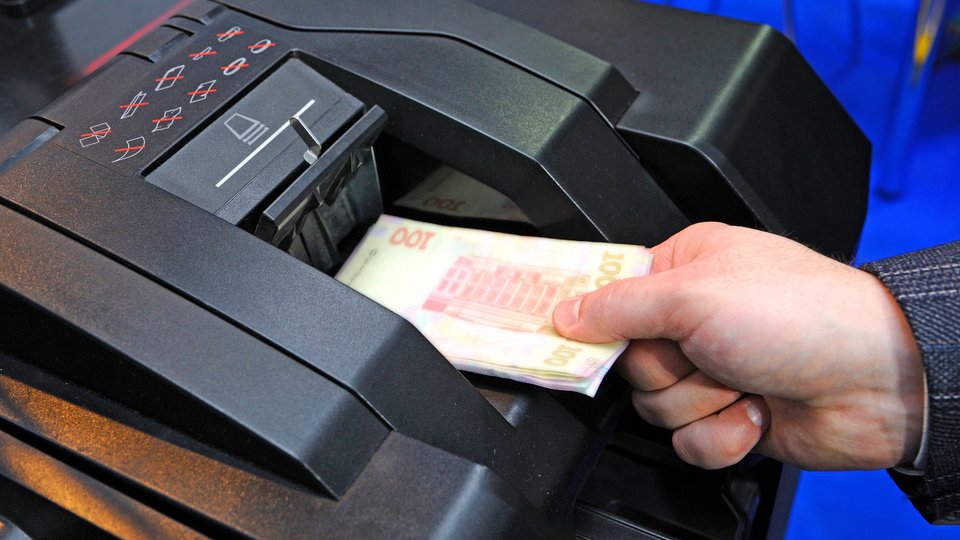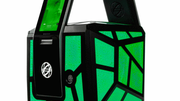ATMIA 26th Annual US Conference
Cash recycling delivers cost savings
Cash recycling delivers optimization and better customer and employee experiences.

February 11, 2025 by Bradley Cooper — Editor, ATM Marketplace & Food Truck Operator
Cash is expensive to handle and manage. One of the key strategies to mitigate that cost is cash recycling technology both at the teller and within ATMs. However, the banking industry in the U.S. has still been slow to fully embrace cash recycling.
In a breakout session at theATMIA conference in Orlando from Feb. 5 to 7, Jodi Neiding, VP of American banking portfolio and Scott Michael Weston, senior manager of advisory services at Diebold Nixdorf discussed the future of cash optimization and how to craft a successful cash recycling strategy.
First off, it's key to ask the question of whether it's worth it to still use cash, as many claim cash is dead.
However, Weston pointed out that according to Federal Reserve data, only "5% said they will stop using it." In addition, the 100s denominations is growing.
ATMs are also seeing a healthy usage with the average withdrawal rate among DN Series models being $267 and deposit being $441. The highest deposit rate is 100s and 20s. This is also reflected in the increase of ATMs dispensing 100 dollars bills, up to 6% from 3% in 2023.
This increasing deposit rate has created a major need for cash recyclers as Neiding points out.
"As we have seen more deposits, those ATMs can't scale with their deposit cassettes," she said. "With cash recyclers, you can have more flexible cash configurations."
Neiding also said that through cash recycling, banks can save costs on CIT(cash-in transit). When the CIT doesn't need to come as often, the bank saves money and the ATM has higher up-time. There is also less of a chance of error such as the CIT not mounting the cassettes properly.
Weston brought up an example of how a branch can improve with bigger cassettes and recycling. Initially, a branch was spending $11,700 for CIT to come three times a week. By adding additional cassettes, it was able to bring that down to once a week to $3,900.
However with cash recycling, that rate went down to biweekly to $1,950.
Neiding said that when determining whether to use cassette configuration or recycling, it's key to look at whether your bank is in the 70 dispense to 30 deposit range.
"When you get that denomination mix in the 70 to 30 mix, that's ideal to turn on cash recycling to get all of those cost savings. We have been seeing a steady increase in deposits in North America with many states in that 30% to 40% deposit range," she said.
Cash recyclers can also help out small to medium business customers in banks. Neiding said 70% of cash coming into banks comes from these small to medium businesses, but many express frustration with the branch experience, with 54% saying it takes too long in the branch and 38% saying they are concerned about delays in deposited funds availability.
However, 75% are willing to use self-service devices to deposit business funds and cash recyclers are more able to handle these large deposits from businesses.
Cash recyclers also have improved security as they can detect counterfeit notes on both the dispensing and deposit side and stop notes coming out of those cassettes.
In addition, cash recycling ATMs can work together with Teller Cash Recyclers within the branch, Neiding said. Since they both run on the same engine, this creates interoperability between the devices without having to physically touch cash.
Weston pointed out that cash recycling removes cash handling as a responsibility for employees, which is a major source of stress.
"It's a much better employee experience when they don't have to touch cash. That's why you see high turnover," Weston said.
Both panelists said that the future of cash management is a closed cash ecosystem where a cassette can be moved from one device to another with no downtime.
Neiding said this is a more holistic approach and it's about, "getting the right technology in place to future proof your investment and optimize your operations." This will also improve overall customer experience both for businesses and individuals.
To summarize cash recycling leads to:
- Less CIT visits.
- Ability for employees to focus on other tasks instead of cash.
- Improved security.
- Improved availability of ATMs.
About Bradley Cooper
Included In This Story
Diebold Nixdorf
As a global technology leader and innovative services provider, Diebold Nixdorf delivers the solutions that enable financial institutions to improve efficiencies, protect assets and better serve consumers.
 ChatGPT
ChatGPT Grok
Grok Perplexity
Perplexity Claude
Claude












